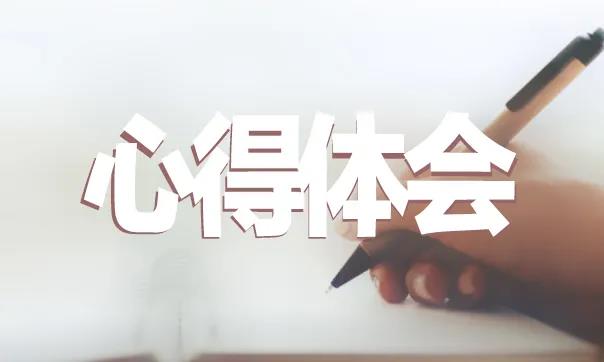江苏省南京市航空航天大学附属高级中学2020-2021学年高一第一次(10月)调研英语试题x
时间:2020-11-21 20:14:51 来源:勤学考试网 本文已影响 人 
南京航空航天大学附属高级中学2020高一第一次调研英语试卷
第—部分 听力 略
第二部分 阅读(共两节,满分50分)
第一节(共15小题;每小题2.5分,满分37.5分)
阅读下列短文,从每题所给的A、B、C和D四个选项中选正确选项,并在答题纸上将该项涂黑。
【A】
Seif-guided Castle Tours (城堡之旅)
When: from May to October, 2016, 9:00 a.m.-5:00 p.m.
Where: Lamach Castie, 145 Camp Rd, Company Bay, Duriedin
Restriction: All Ages
Ticket Information:
Adult Entry (Castle+ Garden): $29.00
Child Entry (Castle+ Garden): $10.00
With its long history and breathtaking views, Lamach Castle offers you a vision of the past and the present. Open from 9 am. until 5 p.m. every day To gain more of Lamach Castle you may wish to hire an audio visual tour guide.
First Sunday Funday Park
When: Sun 3 May 2016, 9:00 a.m.-3:00 p.m.
Where: Ranui Farm Park, 785 Nicholls Rd
Restrictions: All Ages
Ticket Information: Adults: $10.00
Enjoy a mountain bike ride, go for a run or have a walk. See the animals in the Petting Zoo, or have a go at Archery, Golf Challenge, Paint Ball & the 70-meter Water Slide. This is not a competition, though we do have some prizes to give away.
Book now. Limited spaces available.
Water Slide (滑梯) Mania
When: Tue 14 Apr.2016, 10:30 a.m.-4:30 p.m.
Where: Town Basin, Dent St, Whangarei
Restrictions: All Ages
Ticket Information: $8 per hour
The Slide provides entertainment for restless kids. It features a three-meter drop height and a 10-meter slide along a soft surface and into a shallow pool at the end. The slide is perfect for kids aged 5-16 years, although kids younger can also have a try. Parents can relax on the grassed area with a marine view and visit the information center just a stone’s throw away.
Ride the Riverside Railway
When: Wed 28 Jan 2016, l:45 p.m.-3:00 p.m.
Where: Brayshaw Park, Blenheim
10.30
Restrictions: All Ages
Ticket Information:
Family (2 Adults& up to 4 Children): $30.00
Adult: $10.00;
Child (under 3-for free!!): $5.00
Experience a leisurely 50-minute, 11km train journey along the banks of the Taylor River from Brayshaw Park Station to Beaver Station and return. For group booking. (03) 578 1716
21. According to the passage, which of the following statements is True?
A. Kids can slide down a IO-meter long river in Water Slide Mania.
B. Kids can be awarded a prize in First Sunday Funday Park.
C. You can visit Lamach Castle on 26 April at 11:00 a.m.
D. Kids have to buy tickets for ell the four events.
22. Tina aged 7; Angela aged 5; Timmy aged 2, together with their parents and grandpa will take the Riverside Railway, How much should they pay?
A. $40. B. $35. C. $30. D. $25.
23. The passage is intended to ________.
A. compare four different holiday events
B. advise people to stay with their family more
C. inform people of the travel agencies
D. get more people to attend the activities
【B】
The Vienna-based researchers showed that dogs will stop doing a simple task when not rewarded if another dog, which continues to be rewarded is present.
The experiment consisted of taking pairs of dogs and getting them to present a paw for a reward. On giving this “handshake” the dogs received a piece of food. One of the dogs was then asked to shake hands, but received no food. The other dog continued to get the food when it was asked to perform the task.
The dog without the reward quickly stopped doing the task, and showed signs of anger or stress when its partner was rewarded.
To make sure that the experiment was really showing the interaction between the dogs rather than just the frustration of not being rewarded, a similar experiment was conducted where the dogs performed the task without the partner. Here they continued to present the paw for much longer.
Dr. Frederike Range from the University of Vienna says this shows that it was the presence of the rewarded partner that was the greater influence on their behavior.
“The only difference is that one gets food and the other doesn’t. They are responding to being unequally rewarded.” she says.
The researchers say this kind of behavior, where one animal gets frustrated with what is happening with another, has only been observed in primates (灵长类) before.
Studies with various types of monkeys and chimpanzees show they react’ not only to seeing their partners receiving rewards when they are not, but also to the type of reward.
The dog study also looked at whether the type of reward made a difference. Dogs were given either bread or sausage, but seemed to react equally to either. Dr. Range says this may be because they have been trained.
24. The dogs refused to give the paw when they ________.
A. found another dog was given nothing
B. felt they were not treated equally
C. were aware they received less food
D. were given too much reward
25. What would a dog do if it presented its paw alone?
A. It would go on with the performance much longer.
B. It would be too shy to present its paw.
C. It would miss its partner.
D. It would compare what it got with that of another.
26. According to the passage, compared with dogs, monkeys and chimpanzees ________.
A. pay no attention to the type of reward
B. only like to play interesting games
C. pay attention to the type of reward as well as whether they are rewarded
D. care more about how they are rewarded
27. Which of the following can best summarize the passage?
A. Animals’ various ways to show anger.
B. Dogs are more envious than human beings.
C. Most animals want to be rewarded for their work.
D. Animals also have a sense of fairness.
【C】
There are over one million superstitions, and most people believe at least one or two of them. Many people are superstitious about numbers. They think that there are lucky numbers and unlucky numbers. The number 13 is often considered unlucky. In some parts of the world, buildings have no 13th floor and streets have no houses with the number 13.In Japan “4” is considered unlucky because in Japanese the word “four” is pronounced the same as the word “death”. The Japanese never give gifts of four knives, four napkins, or four of anything.
What are the lucky numbers? Seven is a lucky number in many places, and “8” is considered a lucky number in Japan and China. In China, businesses often open on August 8, and many couples register to get married at eight past eight on August 8. Superstitions about numbers are so widespread that some people called numerologists make a living by giving advice about numbers. In 1937, when the Toyoda Family of Japan wanted to form a car company, they asked a numerologist if “Toyoda” would be a good name for the company. The numerologist said it would not be. He explained that “Toyota” would be a better name for the company. The family took his advice. As a result, millions of people drive “Toyotas” and not “Toyodas.”
There are many other kinds of superstitions. There are superstitions about eating, sleeping, sneezing and itching. There are superstitions about animals and holidays and horseshoes.
There are even superstitions about superstitions. Those superstitions tell people how to reverse bad luck. When the Japanese bump (撞) heads, they immediately bump heads again.
According to a Japanese superstition, the first bump means their parents will die, but the second bump “erases” the first bump. To reverse bad luck in general, people turn around three times, turn their pocket inside out, or put their hats on backwards.
28. It can be inferred that superstition about numbers are ________.
A. popular all over the world
B. accepted by many people in the world
C. valuable to businessmen
D. dangerous to common people
29. The underlined word “reverse” in the last paragraph means ________.
A. cause to go in the opposite direction
B. bump heads again
C. prevent their parents from dying
D. make sth. worse
30. If we see a Japanese bumps his head once again, we know that he is ________.
A. mad
B. angry
C. superstitious
D. foolish
31. What’s the writer’s purpose in writing this passage?
A. To persuade us to believe superstitions.
B. To warn us not to believe superstitions.
C. To show us some facts about superstitions.
D. To show us the magic power of superstitions.
【D】
Christmas is still a few weeks away. But in Holland, Germany and other parts of central Europe, man dressed in red with a big white beard will already be flying from house to house with a big sack (麻袋) and presents for children. “Sinterklaas komt!” as Dutch children say-Saint Nicholas is coming!
It’s obvious from the name that “Santa Claus” comes from “Sinterklaas”. Saint Nicholas Day is celebrated on December 6, but there are many things about the saint and his festival that are similar to Christmas. Just as Santa has reindeer (驯鹿), so Sinterklaas has a white horse. Dutch and German children put their shoes out in front of the chimney just like children hang up their stockings on Christmas Eve, hoping that in the morning they will be full of presents. With Sinterklaas, however, you’re also expected to put a carrot in your shoe as a present to his horse.
Like Santa, Sinterklaas also judges whether children have been “naughty or nice” in the past year to help him decide whether they deserve presents. But while good children get sweets, the consequences of being bad are far worse than they are with Father Christmas. Naughty children are given a stick so their parents can beat them. If you are really, really bad, Sinterklaas will put you into a sack and take you away.
In parts of Germany and Austria, people also celebrate December 5-but it is a celebration of naughtiness rather than niceness. On “Krampus Day” , bizarre (奇特的), horned demons (长着角的怪物) (or rather boys dressed in costumes) run around causing havoc (浩劫) and hitting girls with sticks. Authorities (官方,政府) have struggled for years to ban the tradition, but have not been successful. Luckily Saint Nicholas always comes next day to put things right.
32. What is the main focus of the article?
A. The history of Christmas Day.
B. The traditions of Saint Nicholas Day.
C. The differences between Christmas Day and Saint Nicholas Day.
D. The connection between Saint Nicholas Day and Krampus Day.
33. Which of the following statements about Saint Nicholas is TRUE?
A. The festival falls on December 5 in most European countries.
B. On the eve of Saint Nicholas Day, people usually eat carrots.
C. In Germany, children expect to get gifts in their shoes on Saint Nicholas Day.
D. Like Santa, Sinterklaas is believed to ride his reindeer from house to house to give gifts to children.
34.What can we conclude from Paragraph 3?
A. Naughty children don’t get anything from Sinterklaas.
B. As well as children, Sinterklaas also brings gifts for adults.
C. Sinterklaas is more generous than Father Christmas.
D. Sinterklaas treats good children better than naughty children.
35. What is the attitude of authorities towards Krampus Day traditions, according to the article?
A. They don’t like some of the traditions and want to stop them.
B. They organize various activities to entertain people.
C. They respect the way people celebrate the traditions.
D. They regard it as an important tradition and try to make it popular.
第二节(共5小题,每小题2.5分,满分12.5分)
根据短文内容,从短文后的选项中选出能填入空白处的最佳选项。选项中有两项为多余选项。
It is easy to keep your spirits bright when life is going along smoothly and good news seems to turn up at every turn. It is an entirely different picture when life goes off course or bad news appears. The question then becomes: How do we keep our spirits bright throughout the different stages of life? 36
Get Enough Sleep
It wasn’t until I became a mother that I realized how important a good nights sleep truly is. 37 Sleep is such an amazing gift to recharge and start Back to Basics.
When I feel tired with too much to do, I love to put on my shoes and get outside for a run. 38 Getting back to basics can include things like: getting outside, having real conversations with real people, enjoying a meal with a loved one or doing an activity that brings you joy.
Time Management
If life feels like it is out of control and you can’t keep up, see what happens when you try to manage your time. There are many time management systems out there that can help. Have event reminders on your phone and computer. 39 Start your day by writing a list of what you plan to achieve. And sometimes we also need to let go of things that aren’t important.
40
Keeping our deepest desires and dreams alive is the very fuel that keeps our spirits bright. Give yourself the gift of having goals and dreams, and don’t allow fear to have a say in how big your dreams may be.
A. Dream Big
B. We can keep your spirits bright anytime
C. Set an alarm to remind you to leave early
D. Try out the following if they sound like a fit for you
E. For this reason. Should never feel tired in the outside
F. Getting enough pillow time has a way of making us feel more human
G. There’s something about nature and fresh air that gets my stress away
第三部分 语言运用(共两节,满分30分)
第一节(共15小题;每小题1分,满分15分)
阅读下面短文,从短文后各题所给的A、B、C和D四个选项中,选出可以填入空白处的最佳选项,并在答题纸上将该项涂黑。
Perhaps the most interesting person I have ever met is an Italian professor of philosophy who teaches at the University of Pisa. 41 I last met this man eight years ago, I have not forgotten his 42 qualities. First of all, I respected his devotion to teaching. Because his lectures were always well-prepared and clearly delivered, students crowded into his classroom. His followers liked the fact that he 43 what he taught. Further more, he could be counted on to explain his ideas in an imaginative way, introducing such aids (辅助) to understanding as oil paintings, music, and guest lectures. Once he 44 sang a song in class m order to make a point clear. 45 I admired the fact that he would talk to students outside the classroom or talk with them on the telephone. Drinking coffee in the cafe, he would easily make friends with students. Sometimes he would 46 a student to a game of chess (国际象棋). 47 , he would join students groups to discuss a variety of 48 : agriculture, diving and mathematics. Many young people visited him in his office for 49 on their studies others came to his home for social evenings. Finally, I was 50 by his lively sense of humor (幽默). He believed that no lesson is a success unless, during it the students and the professor 51 at least one loud 52 . Through his sense of humor, he made learning more 53 and more lasting. If it is 54 that life makes a wise man smile and a foolish man cry, 55 my friend is indeed a wise man.
41. A. Although B. When C. Even if D. Now that
42. A. basic B. special C. common D. particular
43. A. rise to B. talked about C. believed in D. agreed with
44. A. also B. nearly C. even D. only
45. A. Later B. Secondly C. However D. Therefore
46. A. invite B. lead C. prefer D. show
47. A. As a matter of fact B. Later on C. Other times D. In general
48. A. questions B. subjects C. matters D. contents
49. A. support B. explanation C. experience D. advice
50. A. disturbed B. moved C. attracted D. defeated
51. A. hear B. suggest C. share D. demand
52. A. laugh B. cry C. shout D. question
53. A. helpful B. enjoyable C. practical D. useful
54. A. natural B. normal C. hopeful D. true
55. A. so B. for C. then D. yet
第二节(共10小题;每小题15分,满分15分)
阅读下面短文,在空白处填入适当的单词或括号内单词的正确形式(注意:有的空格可能不止一词)。
Happiness is for everyone. You don’t need to admire (56)________ who have beautiful houses with large gardens and swimming pools or those who have (57)________ (value) cars and lots of money. (58)________ (actual) happiness is always around you if you put your heart into it. When you are in trouble, your friends will lend you (59)________ hand. When you are successful, you friends will provide you with (60)________ (congratulate). When you do something wrong, people who love you will help you correct it. And doing something good for others makes you feel happy, too. Taking a look around you, you’ll see that you are surrounded with (61)________ (happy).
Happiness is not necessarily related (62)________ money. It is a feeling in your heart. When you are poor, you can also say you are very OPP because you have something else (63)________ can’t be bought with money. When (64)________ meet with difficulties, you can say loudly you are very happy, because you have more chances (65)________ (challenge) yourself. If you take every chance you get, you can be a happy and lucky person.
第四部分 写作(共两节,满分40分)
第一节 应用文写作(满分15分)
假定你是李华,收到美国笔友Tom的来信,他谈到在学习和与同学相处两方面遇到了困扰,请你给他回一封信,提出相应的建议。
内容要点:
1. 面临的困扰(上文提到的两点)
2. 相应的建议(至少两条)
注意:
1. 词数80左右。
2. 可适当增加细节,以使行文连贯。
3. 开头和结尾已经给出,不包含在词数内。
Dear Tom,
________________________________________________________________________________________________________________________________________________________________________________________________________________________________________________________________________________________________________________________________________________________________________________________________________________________________________________________________________________________________________________________________________________________________________
Yours sincerely,
Li Hua
第二节 写作(满分25分)
读下面短文,根据其内容写一篇60词左右的内容概要。
This incident happened over twenty years ago when I was in high school. There was a debate competition in my neighbouring school. My friend and I volunteered to participate in the debate. There were many topics to choose from and I choose to speak on AIDS.
Even though I had no idea what the competition would be like, I decided to go ahead and prepare for it and I used an article from a magazine as reference.
On the day of the event, I practiced my lines but was feeling nervous as there would be many listeners and the stage fear was chasing me already and truly it caught up with me. I reached the auditorium (礼堂), and it was large. The competition began, and I was getting sweaty palms. I was at a loss when the speaker before my turn unexpectedly had chosen the same topic as me and also referred to the same magazine and reproduced it line by line, leaving me in a daze (恍惚) on what to do next as I just had a couple of minutes with me.
Soon enough I was on the stage and I could gather courage and speak for only two minutes. I felt so bad. I had not only let my school down but also myself. I then decided to put in my best efforts and overcome my stage fear and prepare well for the next debate. Luckily I did not have to wait long as the next competition was organized by my school.
This time my topic was against castes (印度的种姓;等级制度) in indian society. I wrote the script with my own efforts and practiced for hours in front of the mirror even though I had learned the script by heart.
The day came and this time I was confident about myself, I just went about doing my job and lasted for five minutes. I had a very satisfied feeling coming from within. When the results were announced, I had come second in the event, I was so happy and all my efforts paid off.
____________________________________________________________________________________________________________________________________________________________________________________________________________________________________________________________________________________________________________________________________________________________________________________________________________________________________________________________________________________________________________________________________________________________________________________________________________________________________________________________________
南京航空航天大学附属高级中学2020高一第一次调研英语试卷答案
第—部分 听力(每题1.5分,满分30分)
1-5 CABBC 6-10 CAABB 11-15 CACAB 16-20 ABBCC
第二部分 阅读
第一节(共15小题;每小题2.5分,满分37分)
21-23 BAD 24-27 BACD 28-31 BACC 32-35 BCDA
第二节(共小题,每小题2.5分,满分12.5分)
36-40 EGFBA
第三部分 语言运用
第一节(共15小题;每小题1分,满分15分)
41-45 ABCCB 46-50 ACBDC 51-55 CABDC
第二节(共10小题;每小题15分,满分15分)
56. Those 57. Valuable 58. Actually 59.a 60. Congratulations
61. happiness 62. T








